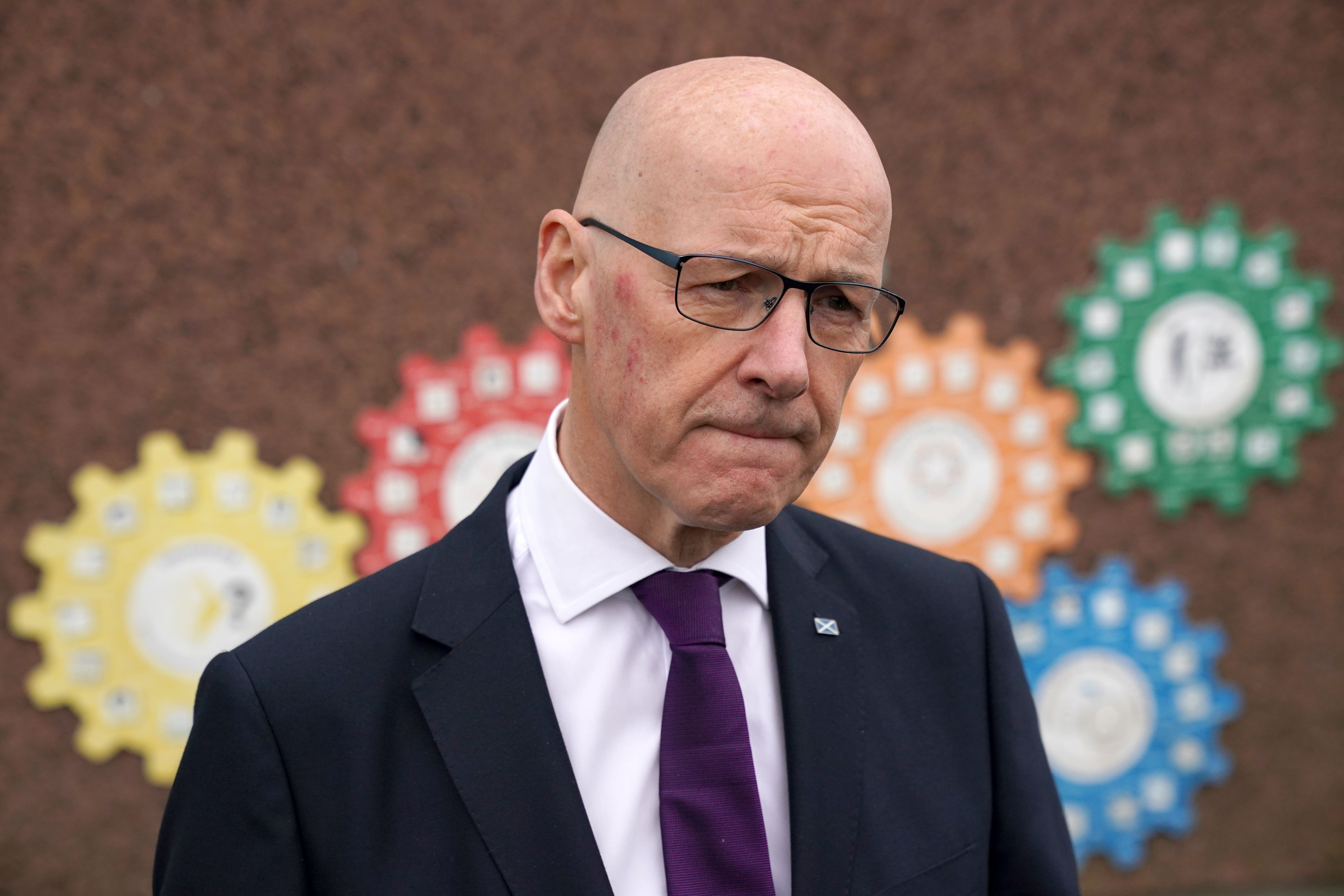Election means early test for Swinney weeks after becoming First Minister
The SNP will face a strong challenge from Labour in the Westminster election.

Your support helps us to tell the story
From reproductive rights to climate change to Big Tech, The Independent is on the ground when the story is developing. Whether it's investigating the financials of Elon Musk's pro-Trump PAC or producing our latest documentary, 'The A Word', which shines a light on the American women fighting for reproductive rights, we know how important it is to parse out the facts from the messaging.
At such a critical moment in US history, we need reporters on the ground. Your donation allows us to keep sending journalists to speak to both sides of the story.
The Independent is trusted by Americans across the entire political spectrum. And unlike many other quality news outlets, we choose not to lock Americans out of our reporting and analysis with paywalls. We believe quality journalism should be available to everyone, paid for by those who can afford it.
Your support makes all the difference.Labour seems to be the party best placed to make gains in Scotland in the general election.
New SNP leader and First Minister John Swinney has vowed to work to get his party into a winning position, but pollsters have warned he faces a “major uphill task”.
The Westminster election will therefore mark an early test for Mr Swinney – who only took over as leader of his party earlier this month, returning for a second shot at the job.
The SNP has for so long been the dominant force in politics north of the border, but a recent YouGov poll put Labour, led in Scotland by Anas Sarwar, 10 points ahead.
In the last general election in December 2019, Scots returned just one Labour MP – down from seven – with Ian Murray holding on to his Edinburgh South seat.
Since then, support for Labour has been on the rise, with the research by YouGov earlier in May putting the party’s share of the vote in Scotland at 39% – up five points from its April poll.
Analysis suggests that could see Labour, which currently has two Scottish MPs, win 35 seats north of the border.
With support for the SNP said to be down to 29%, its tally of MPs could fall to 11.
That would represent a massive drop in representation at Westminster for the party, which at the peak of its success won all but three of the constituencies north of the border.
That was the result in 2015, when the SNP swept the board in Scotland, winning 56 of the 59 seats up for grabs, leaving Labour, the Liberal Democrats and the Tories with just a single MP each.
Their electoral dominance has continued in Scotland since then – though subsequent election results have seen the party fail to achieve such stratospheric success.
In the December 2019 election, the SNP won 48 of the Scottish 59 seats, however defections and the loss of the Rutherglen and Hamilton West seat in a by-election mean it currently has 43 MPs.
Labour won Rutherglen with a swing of just over 20% from the SNP, boosting the party’s hopes it can once again send a significant number of Scottish MPs to Westminster.
Boundary changes mean that when Scots go to the polls, they will elect 57 MPs, down from 59.
Meanwhile, the Lib Dems also believe they can make gains in Scotland at the SNP’s expense.
In 2019, the Lib Dems won just four seats in Scotland, with then UK leader Jo Swinson losing her Dunbartonshire East constituency to the SNP.
But under the leadership of Sir Ed Davey at UK level and Alex Cole-Hamilton in Scotland, the party is targeting success again, focusing efforts on local councillor Susan Murray’s bid to win the Mid Dunbartonshire seat.
Liberal Democrats also hope they can gain from the SNP in the Highlands, with the party seeking success in the Lochaber, Skye and Wester Ross seat – an area previously represented by former Liberal Democrat leader Charles Kennedy before he lost his seat to Ian Blackford of the SNP in 2015.
Mr Blackford is one of a number of prominent SNP MPs who are quitting the Commons, with current SNP Westminster deputy leader Mhairi Black stepping down, along with former SNP depute leader Stewart Hosie and Philippa Whitford, who has served as the party’s health spokeswoman.
Earlier this month, Chris Hopkins, political research director at pollsters Savanta, warned of the “major uphill task” Mr Swinney faces going into the election.
Mr Hopkins said: “While our research suggests that the SNP continues to have a solid base, they’re likely to fall quite far from the 43 seats they currently hold at the next general election, as things stand.
“Even if Swinney can begin to turn things around, the spectre of Sturgeon and everything her time in power is now associated with will continue to hang over the party and hamper any recovery.”
Humza Yousaf, who stepped down as first minister and SNP leader earlier in May, had already cited the Police Scotland investigation into the party’s finances as one reason why the SNP lost the Rutherglen by-election in October last year.
Since then Ms Sturgeon’s record as first minister has come under further scrutiny, with confirmation that she deleted WhatsApp messages during the Covid pandemic, sparking criticism.
With the election also taking place during the school holidays – most schools in Scotland finish for the summer at the end of June – parties will also be concerned about the impact this could have on voter turnout.